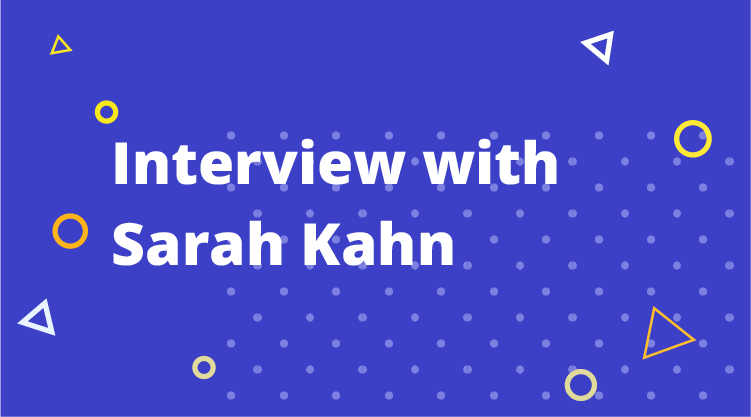



Raleigh/Durham Girl Develop It Chapter Leader Sarah Kahn
Sarah Kahn is one of the leaders of the Raleigh/Durham chapter of Girl Develop It, a nonprofit organization dedicated to teaching software development to women in a welcoming and judgement-free environment. The following interview with Kahn is part of our celebration of women in tech, which is ongoing through December 10.
How and when did you begin your technical career?
I first started fooling around with HTML in high school. I took a couple of web design classes in college for fun, but didn’t see it as a viable career option—it was more of a hobby. When I decided to pursue a master’s in library science at the University of North Carolina at Chapel Hill, I was exposed to the field of information science (IS), and migrated into that. I took mostly IS classes while in grad school, and pursued technical research assistantships, landing one at ibiblio.org after working a semester for free, and one at Duke University Libraries Digital Projects department. I picked up a lot of skills there and met the director of the engineering team at Lulu.com (an ibiblio alum), which is how I landed my first professional position as a UI engineer.
Do you have a favorite technology or gadget, either from the past or one in use today?
I’m really interested in wearable technology. My current favorite is this: https://www.kickstarter.com/projects/1345510482/jewelbots-friendship-bracelets-that-teach-girls-to.
Who is your role model?
I’ve been fortunate enough to be surrounded by smart, talented, driven women. I’m constantly inspired by my fellow co-leaders across Girl Develop It, our teachers and volunteers, and most of all our students. They come from all walks of life, and are determined to learn, some of them against steep odds. We’ve had students insist on live-streaming classes while hospitalized! We have students who are starting over in their 40s and 50s. We have students who don’t have a computer at home, and do their homework at the library. That takes a level of commitment and determination that I find extremely inspiring.
Who is your favorite woman in technology?
It’s so hard to pick just one. We have so many amazing role models. One I would have to mention is the CEO of my company, Saffron Technology, Gayle Sheppard. There are very few women in senior leadership in technology. I hope we’ll start to see more and more.
What are the biggest challenges about being a woman in technology?
It’s easy to feel like a square peg in a round hole. There are lots of tiny things that can add up to making you feel like you don’t belong. Building up the mental toughness to push back and say, “Yes, I do belong. I earned the right to be here, I am good at what I do,” is an ongoing battle.
Did your parents and family encourage you to pursue a career in this field?
Not really. My family had a computer at home since the late 80s, and we got internet in 1995. I was allowed to fool around with it but it was not encouraged as a career option. I don’t think people really thought of it that way back then.
What advice would you give a young woman starting out in the tech field?
There are a lot of awesome meetup and community groups in tech. Find other people and reach out to them. You will learn a lot and build your network to support you. It’s really helpful to have a group of people to bounce ideas and situations off. You can always begin with Girl Develop It Code + Coffee events!
What could the tech community do to be more inclusive of women?
We need to let go of our predisposed ideas of what a good programmer looks like, and be open to other ways of being. I’ve worked at a few startups where “cultural fit” was confused with “someone I’d personally hang out with on the weekend.” Someone can be extremely talented and a great colleague but not necessarily be available to play video games during the day and work late to make up the time, for example. We need to be more open to people from different paths, who may look or talk differently, or have different interests and priorities outside of work.